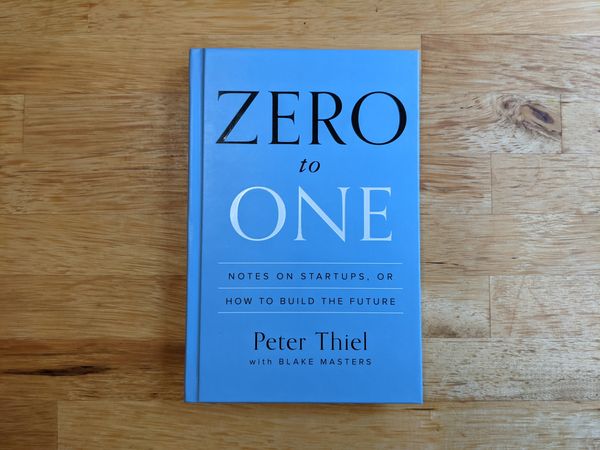
“Under perfect competition, in the long run, no company makes an economic profit”Įssentially, if you build a product and enter into competition - prices will drop, sales will be divided and overall profits will thin. The author states that companies should avoid competition if they choose to maximize profits. Peter, however, does back his statements with insights that would make the reader ponder. Here’s where some people may raise eyebrows. #2 - Competition Is For Losers, Monopoly Is For Winners Peter places this idea before us in an effort to ramp up to his next key idea: Competition is bad. I discuss the key differences in this post: 3 Types Of Markets.

My Thoughts: Theil is essentially distinguishing between a startup entering a New Market versus a startup that enters an existing market. Theil stresses that he key to vertical progress lies in being a visionary and making a bet on the future. The next Larry Page or Sergey Brin won’t make a search engine.” The next Bill Gates will not build an operating system. “ Every moment in business happens only once. Peter Thiel points out that the key differentiator is that the former is a Vertical Progress (Zero to One) while the latter is Horizontal Progress (One to N). However, when you go from One to N, you’re improving or scaling something that already exists. Going from Zero to One entails creating something new - something that doesn’t exist yet. Thiel’s first important lesson is to understand the distinction between “Zero to One” and “One to N”.

Finally, I will discuss why I’m not entirely convinced by Peter Theil’s claims.

In this concise summary we’ll walk through the 3 Biggest (and contrarian) Ideas from the book ‘Zero to One’. These feats make it very difficult to ignore his advice.īut Peter Thiel’s notions may make many people raise an eyebrow.


 0 kommentar(er)
0 kommentar(er)
